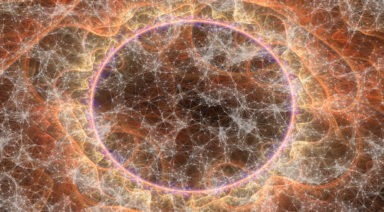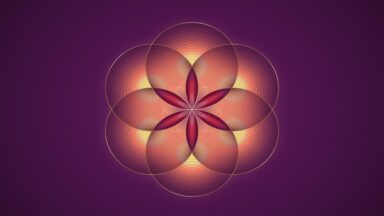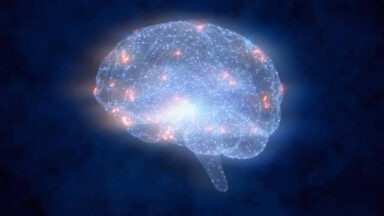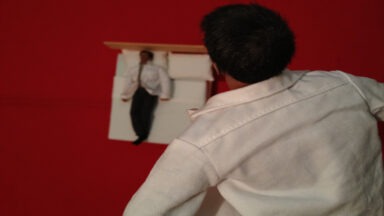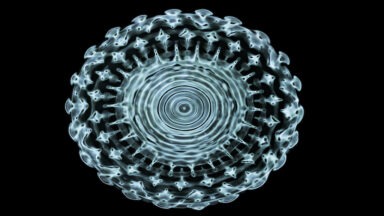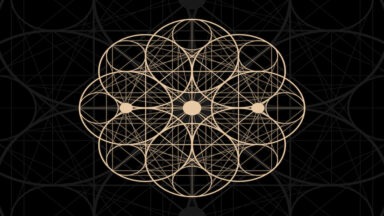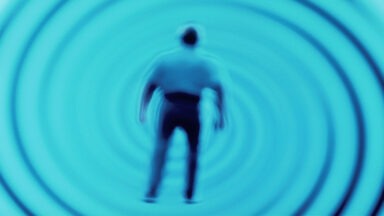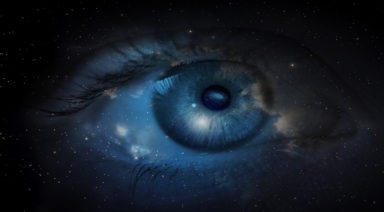Final Words Project: The Dying’s Final Words Hint at Afterlife

What can the final words, spoken by the dying, tell us about life’s greatest mystery? According to the findings of a long-term research project, a great deal.
Lisa Smartt is a linguist who, in 2012, became interested in the words spoken by the dying when she noticed peculiar changes in her father’s speech as he was passing.
“So one of the things I noticed when I was sitting bedside with my father, well the first thing was he started talking about angels in the room, and my dad was a hardcore scientist. So when I heard my tough, gruff, cigar-smoking Papa talking about angels in the room, I took notice. Being a linguist, I pulled out my pencil and pad and started taking notes. Three days before he died, he shared that the angels say ‘only, three days left,’ and indeed three days later he was gone. And what began to emerge in my notes intrigued me, and led me to the language of the dying, but there wasn’t much written. So I attended a workshop with Dr. Raymond Moody and together we established the Final Words Project.”
Since the project began, Lisa has collected 200 accounts of the last words of the dying from those at their bedsides. Throughout more than a decade of analysis of 2,000 final utterances, Lisa has come to see many universal patterns and recurring themes.
“Specifically you see patterns about a big event coming, someone might say, ‘oh, the big dance is coming’ or ‘the big art show is coming,'” Smartt said. “And then people also talk about traveling, some say ‘the ship is ready’ or ‘the boat is ready,’ feeling that something is kind of moving them along that’s bigger than they are. And then another way that this hybrid language appears is someone may say ‘get me my checkbook, I need to pay at the gate,’ as if they’re referring to Heaven’s gate, so they’re bringing pieces of this world and beginning to talk with the other.”
“People might start talking about things that some family members or loved ones might think are nonsense like ‘my husband (who had died 10 years ago) is standing at the edge of my bed.’ Now to some people they may think that’s nonsense, but it seems from our research and others that there actually are visitors standing at the bedside with those who are dying and that’s not nonsense,” she said.
One particularly fascinating implication is the glimpse these final words seem to provide of what may come after physical death.
“There’s a lot of repetition, you know one well-known example of this is Steve Jobs ‘wow, wow, wow’ before he died, I think those were actually his very final words, and you can only imagine, what did he see? What did that exclamation refer to? People definitely start talking about how beautiful it is over there. I’ve come in contact with so many people who have had near-death experiences and there’s such a sense of peace, and you can see this in some people even before they die. There is this energy that seems to be moving toward some kind of new emergence or a new state of being,” Smartt said.
Just what do these final words suggest about the nature of consciousness?
“In just metaphor, talking about angels in the room, and visions, and predeceased relatives or the walls looking like trees, seeing lights, and all kinds of things are a complete indication to me that there’s something going on as people are dying that is some reflection that consciousness continues. And that process of the transition, I do believe we return to source, to that light and love. A lot of people describe from their death experiences that ball of consciousness as light and love.”
Lisa points out that despite the many transcendent words spoken by the dying, the process itself is not always easy, and offers this advice for those at their bedsides.
“I suggest that people have a journal or log next to the person’s bed, or if you feel comfortable and they do, just put on your phone and record things,” Smartt said. “Begin to see if you see any themes or language or even references to visitors. Sometimes because of our own grief, and also because some things sometimes sound nonsensical out of context, we’re not really tracking the patterns of language or the themes that people are saying. If it’s possible to hold the whole experience as a sacred experience, even as difficult and challenging as it is, just hold it as sacred, and assume that what you’re seeing and what you’re hearing are actually sacred messages.”
For Lisa, this Final Words Project has been a truly profound personal journey and a great help in guiding her own mother through the dying process.
“When I speak to my mother and when she’s fearful I can say, ‘God’s holding you,’ or whatever you want to call that larger divine light, ‘the Light is holding you.’ I’m so grateful that I was exposed to all this material and to know so deeply some other-dimensional experience happens, I don’t know quite what it is, but it is, it exists,” she said.
The 37th Parallel – A Line of Mystery and Significance

The 37th parallel is a circle of latitude that runs around the Earth at 37 degrees north or south of the equator. While it may seem like just another line on a map, the 37th parallel has gained an unusual reputation over the years.
Not only does it serve as a border between U.S. states, but it is also considered “America’s Paranormal Highway“—a hotspot for UFO sightings, cattle mutilations, and other unexplained phenomena. Additionally, the 37th parallel north plays a role in human health, geological activity, and historical significance.
This article explores the geographical location of the 37th parallel, its paranormal history, and other ways this latitude has left its mark on science and culture.



